CIA Sponsored Terror, Civil Liberties, Surveillance, Violations of U.S. and International Law, Whistleblowers
Podcast: Play in new window | Download

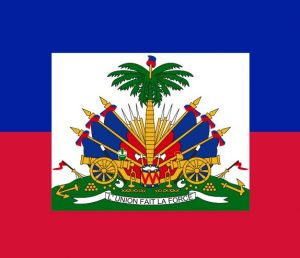
Project Blueprint: Haiti
Haiti is a nation in crisis, spiraling out of control since last year’s assassination of its president, Jovenet Moise. The government has cratered, and 200 violent gangs have seized control. There’s no fuel, and food and water are hard to come by. Businesses and schools are shuttered and hospitals, banks, and grocery stores teeter on the brink of closure. Clean water is scarce, and Haiti faces another cholera outbreak. An estimated one million people are starving in the middle of Haiti’s biggest city. Kidnappings, human trafficking, homicides and sexual and gender-based violence are rampant.
Last week, the UN Security Council unanimously adopted a resolution demanding an immediate end to violence and criminal activity in Haiti. It calls for sanctions on groups and individuals threatening peace and stability in the impoverished nation. The sanctions resolution implicated Jimmy “Barbecue” Cherizier, whose gang has blockaded a central fuel terminal. Cherizier is a former police officer leading a group of gangs known as the G9 Family and Allies. He now faces asset freeze, an arms embargo and a travel ban.
Institute For Justice and Democracy In Haiti
Guest – Human rights attorney Brian Concannon, Executive Director of Project Blueprint, and the founder and former Executive Director of the Institute for Justice and Democracy in Haiti. Brian has been qualified as an expert witness on conditions in the country of Haiti in more than 40 cases in courts both in the United States and Canada.
—-
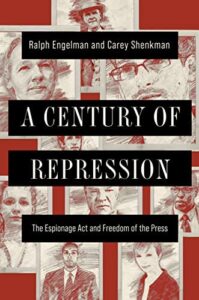
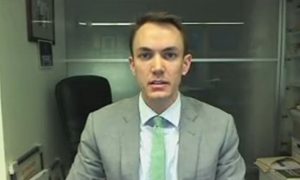
A Century of Repression: The Espionage Act and Freedom of the Press
For more than a century, the 1917 Espionage Act has been used by the United States government to target critics of its foreign and military policy. From suppressing criticism of U.S. participation in World War I to present-day attempts to silence whistleblowers, political dissidents and journalists who expose our nation’s war crimes, the Espionage Act is a dangerous weapon in the federal government’s legal arsenal. It has been employed to limit freedom of speech, freedom of the press, and freedom of information.
In their new book, A Century of Repression: The Espionage Act and Freedom of the Press, Ralph Engelman and Carey Shenkman trace the use of the Espionage Act against Eugene Debs, Daniel Ellsberg, Edward Snowden, Chelsea Manning and Julian Assange, among others. During World Wars I and II, the Act was primarily directed at political opposition to government policies. During the Cold War, it was used to criminalize leaks, manipulate the flow of information, and mold public opinion. And during the “War on Terror,” the Act has been used as a means to combat digital disclosure and journalism.
Journalist Julian Assange, founder and publisher of WikiLeaks, is currently locked up in a maximum security prison in London while the Biden administration attempts to have him extradited to the United States to stand trial on Espionage Act charges that could result in 175 years in prison. The basis for the indictment against him is WikiLeaks’ revelation of U.S. war crimes in Iraq and Afghanistan.
Guest – Carey Shenkman is a constitutional lawyer and litigator focusing on freedom of expression, transparency and technology. He serves on the panel of experts at Columbia University’s Global Freedom of Expression Program, and consults on media rights issues before the United Nations and around the world.
Hosted by Attorneys Heidi Boghosian, Marjorie Cohn and Julie Hurwitz

————————————–
CIA Sponsored Terror, Civil Liberties, Civil Rights, Human Rights, Supreme Court, War Resister
Podcast: Play in new window | Download
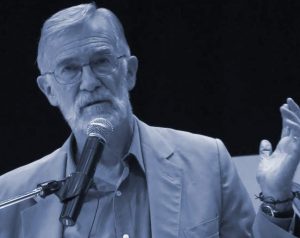
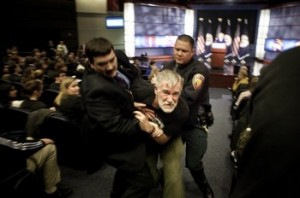
A Unified Movement of Peace
The world today is threatened with war, poverty, displacement and hunger like no other time since 1937 when World War II began with the Japanese invasion of China. Within four years the war had spread leading to the death of tens of millions of people. This included 50 million Russians, 400,000 Americans and finally hundreds of thousands of Japanese civilians in 1945 when the US initiated the nuclear age with the bombing of Hiroshima and Nagasaki demonstrating American power to the Russians. This initiated the Cold War which is now in a second stage. It must be stopped.
The American wars in Vietnam and Iraq were based on lies. We were told in 1965 by President Lyndon Johnson that the Vietnamese had attacked American ships in the Gulf of Tonkin. This was a lie. In 2003 we were lied to by President George W. Bush who told us that Saddam Hussein had weapons of mass destruction.
The proxy war in Ukraine against Russia is based on the ubiquitous lie that the Russians were unprovoked. It threatens to spin out of control. Why are we again in this situation and what can we do about it? What is desperately needed is a unified American peace movement.
Guest – Ray McGovern former CIA intelligence analyst, Ray briefed President George H. W. Bush every morning on intelligence matters, particularly with respect to Russia. He is a founder of VIPS, Veteran Intelligence Professionals for Sanity and a contributor to the blog Common Dreams.
—-

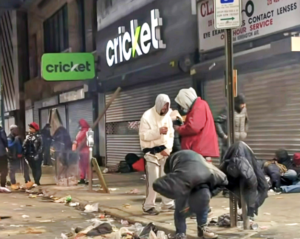
Doctors Lose Licenses For Properly Prescribing Opioids
The CDC wrongly thought pain management doctors were over prescribing opioids. The CDC issued guidelines in 2016 put limits on the amount of opioids doctors could prescribe thinking that high doses of Oxycontin lead to addiction and death. These guidelines were disastrous for chronic pain patients. Many were driven to buy illegal drugs on the street which were laced with poisonous fentanyl. In 2021 this led to 100,000 deaths in the United States.
Several insurance companies encouraged the CDC to impose limits on doctors prescribing Oxycontin and to taper their patients. Opioids are very expensive. The insurance companies were fortified in their erroneous belief by the efforts of a certain organization of doctors who are not pain management specialists.
When the CDC guidelines were exceeded, the Department of Justice threatened to indict doctors and got them to stop practicing medicine. The doctors gave up their medical licenses and licenses to prescribe narcotics. Some were prosecuted. Some went to prison. Some endured large fines. Seventeen hundred out of 6000 pain management doctors were removed from the practice of medicine.
Doctors who refused to taper were victimized. These doctors correctly believed that their patients were dependent on high dosages of opioids but were not drug addicts. These doctors understood that denying their patients high dosages of opioids would lead to suicides and deaths by overdose from street drugs.
The United States Supreme Court recently ruled in the case of The United States v Ruan that doctors have the right to treat their patients as they see fit without government interference, they ruled 9 to 0 that doctors who prescribed opioids in good faith did not have the requisite mindset, mens rea, to be found guilty of over prescribing.
Guest – Kelly Dineen Gillespie is a professor of law and the Director of the health law program at Creighton University School of Law. She teaches health law and bioethics. Dr. Gillespie holds a PhD in health care ethics as well as a law degree. Before attending law school she worked as a nurse in neurosurgery and transplant ICUs. She co-wrote two friend of the court briefs in the significant Ruan v United States case on behalf of professors of health law and policy before the US Supreme Court regarding criminal distribution under the Controlled Substance Act as applied to doctors‘ prescriptions. In June 2022, the Supreme Court adopted much of the reasoning advanced in these briefs in a unanimous decision supporting doctors.

————————————
CIA Sponsored Terror, Civil Liberties, Civil Rights, Human Rights, U.S. Militarism
Podcast: Play in new window | Download
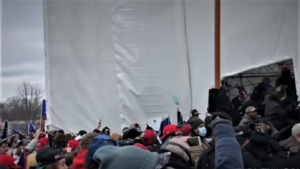
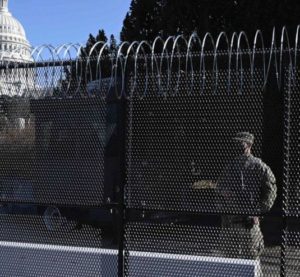
The Menace of American Authoritarianism
Law And Disorder Radio was launched 18 years ago by four lawyers for the purpose of defending democracy and the rule of law.
This was just after the United States attacked Iraq under the false pretense that Iraq harbored weapons of mass destruction.
We have seen democracy and the rule of law consistently disintegrating. Starting perhaps 40 years ago under the Reagan administration, this disintegration has brought us to the crisis of today. A committee of the House of Representatives is actually holding televised hearings on the attempted coup d’état by the last president, Donald Trump.
At the first hearing, it was demonstrated that Trump planned to ignore the results of an election which he lost by 7 million votes. The insurrection that he initiated was unsuccessful. The Capitol was attacked after Trump incited the insurrectionists and Trump did nothing to stop it for over three hours. When Vice President Mike Pence refused to go along with Trump’s scheme to overthrow the election results, Trump suggested that hanging Pence was a good idea. The insurrectionists had built a gallows on the grounds of the Capitol.
What has brought us to this critical point?
We live in a country where inequality is increasing, where, as Bob Dylan wrote, “money doesn’t talk; it swears.“ Nearly half the population is poor or near poor. Neoliberalism, an extreme form of capitalism, has taken hold and hollowed out the country. Schools have been privatized and there is no national healthcare system. Students are 1.7 trillion dollars in debt just as a result of attending college. The country’s infrastructure is crumbling, there’s no decent railroad service, there are mass shootings almost every day, and the US government is spending $813 billion on war this year. The United States refuses to help negotiate a peace agreement between Russia and Ukraine. The twin threats of nuclear war and climate catastrophe hang over our heads. Things are dreadful. We have reached a point summarized by the great Italian revolutionary Antonio Gramsci, who was imprisoned by a fascist dictator. Gramsci famously wrote from his prison cell: “The old world is dying, and the new world struggles to be born: now is the time of monsters.”
Guest – Professor Henry A. Giroux currently holds the McMaster University chair for a Scholarship in the Public Interest in the English and Cultural Studies Department. He has written many books, most recently The Public in Peril: Trump and the Menace of American Authoritarianism and American Nightmare: Facing the Challenge of Facism.
—-
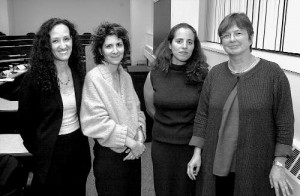

Lawyers You’ll Like: Professor Holly Maguigan
In our Lawyers You’ll Like series we’re joined by Professor Holly Maguigan, Professor of Clinical Law at the New York University School of Law, where she teaches Comparative Criminal Justice Clinic: Focus on Domestic Violence and Evidence. Professor Maguigan is an expert on the criminal trials of battered women. Her research and teaching is interdisciplinary. Professor Maguigan is a member of the Family Violence Prevention Fund’s National Advisory Committee on Cultural Considerations in Domestic Violence cases. She serves on the boards of directors of the National Clearinghouse for the Defense of Battered Women and the William Moses Kunstler Fund for Racial Justice. She is a past co-president of the Society of American Law Teachers, the largest membership organization of law professors in the U.S.
Professor Holly Maguigan:
- I was doing medieval history and I was at Berkeley. It was 1967 and Oakland stopped the draft.
- I got very interested in the anti-war politics.
- I hated lawyers. I really hated lawyers. They were boring. They talked about themselves all the time. They only had stories about their cases and how great they were and they would never post bail when people got arrested.
- The University of Pennsylvania in Philadelphia is where I stayed for 17 years.
- First I started out as a public defender. I loved being a public defender, it was the beginning and end of everything I hoped it would be.
- That’s where I met David Rudovsky and David Kairys. They were then defenders while I was a student.
- After they went out on their own, they kept inviting me to join them. I kept putting it off because I loved being a defender so much.
- In Philadelphia there was much more actual litigation, not just motion litigation there’s a lot of that here in New York City but actual trials.
- You had a sense, there was an analysis that people were doing life on the installment plan and you needed to do what you could to kick them loose any particular time.
- It was a community in its own odd way and I found it difficult to leave it.
- I was doing major felonies within a couple of years.
- David Kairys was very focused on constitutional litigation and government misconduct. He did the Camden 28 which was a big draft resistance case.
- My interest was more into criminal defense.
- Grand juries (all over the country) convened to investigate the alleged transportation of Patty Hearst by the SLA from California where she had been captured.
- He was a killer. (Frank Rizzo) There was no question. More people died in police actions before or since.
- I don’t mean to suggest that all the police started out as homocidal. This was a situation which from the top down came the message if you’re a good cop then you’re going to take people out however you think you need to.
- I knew about race and class bias in the court room as much as a white woman who was middle class could know.
- I was just blown away by what happens when you add hatred of women to hatred of black people and hatred of poor people.
- Judges would go by me in the hall and say Maguigan, ahem, you didn’t give me anything this Christmas, not even one lousy bottle, you’re not getting any assignments.
- Judges would do things, like open the drawer in their chambers, and there would be wads of bills, and they’d let you know.
- I developed a specialty on women who kill men.
- In the early eighties a group in Philadelphia called Women Against Abuse began working and they did advocacy for battered women accused of crime and meant a huge difference.
- The battered women cases I was working on were quite consuming because people then didn’t know very much in how to try these cases.
- The judges expected you to plead insanity or guilty. Reasonable doubt was a consideration at sentencing not at trial.
- There were cases that did require teams. There was no question.
- I wanted to be in court. I wanted to be in the presence of that conflict between the authorities and regular people.
- I went to NYU where I taught in the criminal defense clinic for many years.
- To see students react to the great stories their clients have is just amazing.
- SALT (Society of American Law Teachers) is about who gets into law school, what they learn and who teaches them. It’s about access to justice. It’s about relating to law school as a place where you train people to do social justice. SALT’s focus is on students and teaching.
- Holly Maguigan to be honored by Society of American Law Teachers.
Guest – Professor Holly Maguigan teaches a criminal defense clinic and one in comparative criminal justice as well as a seminar in global public service lawyering and a course in evidence. She is an expert on the criminal trials of battered women. Her research and teaching are interdisciplinary. Of particular importance in her litigation and scholarship are the obstacles to fair trials experienced by people accused of crimes who are not part of the dominant culture. Professor Maguigan is a member of the Family Violence Prevention Fund’s National Advisory Committee on Cultural Considerations in Domestic Violence cases. She serves on the boards of directors of the National Clearinghouse for the Defense of Battered Women and the William Moses Kunstler Fund for Racial Justice. She is a past co-president of the Society of American Law Teachers, the largest membership organization of law professors in the U.S.

———————————————–
CIA Sponsored Terror, Civil Liberties, Civil Rights, Human Rights, U.S. Militarism, Violations of U.S. and International Law, War Resister
Podcast: Play in new window | Download
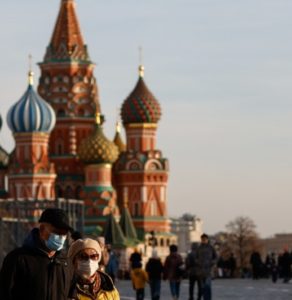
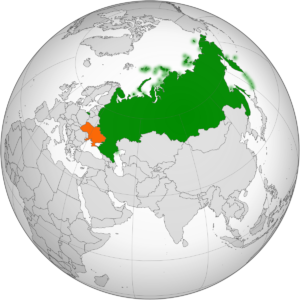
Russia, Deescalation And Nuclear Disarmament
If the U.S. nuclear policy doesn’t change immediately and rapidly we are in a lot of trouble. Seventy-seven years ago, the United States became the first, and so far the only, country to use nuclear bombs when we destroyed the two Japanese cities of Hiroshima and then Nagasaki to frighten the Russians and secure an immediate and unconditional surrender of Japan in World War II. The dropping of these bombs was the first move against Russia that would devolve two years later in 1947 into the Cold War.
The threat of nuclear war has never eased and it is now imminent with the fighting in the Ukraine which could draw the U.S. and NATO into a direct conflict with Russia. We are now in a new stage of this war. It has become hot and so perilous it threatens all of humanity, all of earth’s creatures, with annihilation. Any mistake, any miscalculation would quickly and irretrievably doom us all. This almost happened during the Cuban Missile Crisis where nuclear war was avoided, according to scholars, by luck and decent leadership.
What has been the history of attempts to contain and roll back the threat of nuclear war? What has been tried and what is failed? What will it take to get the nine countries who possess nuclear weapons to give them up?
The Veterans for Peace organization spelled it out clearly. There should be a “no first use” policy and nuclear missiles must be taken off hair trigger alert. The United States should rejoin the Anti-Ballistic Missile Treaty and the Intermediate-Range Nuclear Forces Treaty, from which George W. Bush and Donald Trump withdrew, respectively. The U.S. should sign the Treaty on the Prohibition of Nuclear Weapons. Our country should initiate negotiations to reduce and eventually eliminate all nuclear weapons, as required by the Nuclear Non-Proliferation Treaty, to which the U.S. is a party.
To start, there must be a cease-fire in the Ukraine, the withdrawal of Russian forces, and guarantees of Ukrainian sovereignty and Russian security.
Peter’s recent article – Beijing should help mediate to end the Russia-Ukraine crisis
Guest – Peter Kuznick is a professor of history at American University and directs the Nuclear Studies Program. at that institution. Peter and Oliver Stone wrote The Untold History of the United States and also produced a showtime documentary series based on the book.
—-
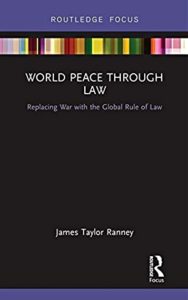
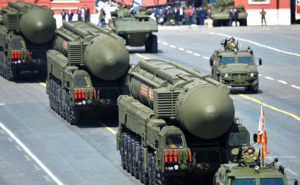
World Peace Through Law: Replacing War with the Global Rule Of Law
In 1945, following World War I and World War II, wars that claimed millions of lives, the nations of the world enacted the United Nations Charter “to save succeeding generations from the scourge of war.” The Charter prohibits the use of military force except in self-defense after an armed attack by another state or when the Security Council approves it. The five victors of World War II, who became the permanent members of the Security Council, agreed to the Charter because they each received a veto over matters of war and peace.
The United States is a party to the 1970 Nuclear Non-Proliferation Treaty. Nevertheless, it continues to violate the provision of that treaty that requires the parties to move toward the elimination of nuclear weapons. Although he won the Nobel Peace Prize, Barack Obama’s administration advanced a policy, which Donald Trump and Joe Biden continued, to develop leaner and meaner nuclear weapons. The proposed U.S. budget calls for nearly $2 trillion over the next 30 years to build two new bomb factories, missiles, planes, submarines and redesigned warheads. In spite of the UN Charter and the Nuclear Non-Proliferation Treaty, we are now facing the most dangerous threat of nuclear war in the last 60 years.
Guest – James Ranney is a retired Adjunct Professor at Widener Law School, co-founder of the Jeanette Rankin Peace Center, a legal consultant to the UN International Criminal Tribunal for the Former Yugoslavia, and a board member of the Project for Nuclear Awareness. Professor Ranney has written a book called “World Peace Through Law: Replacing War with the Global Rule of Law.” In this book, he calls for arms reduction, including the abolition of nuclear weapons, and global alternative dispute resolution mechanisms, with enforcement mechanisms.

—————————
CIA Sponsored Terror, Civil Liberties, Human Rights, U.S. Militarism, Violations of U.S. and International Law, War Resister
Podcast: Play in new window | Download

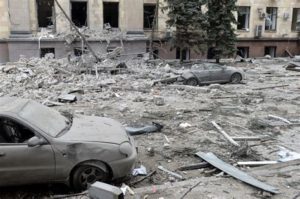
Ukraine, Russia, NATO and United States Conflict Analysis
As attacks escalate in Ukraine, the push for a no-fly zone over the country grows stronger. However last week there were indicators that top Ukrainian negotiators are moving toward a cease-fire deal. This comes as we’ve reported last week that the United States has baited the Russian bear repeatedly, starting in 1990 with the breakup of the Soviet Union. At that time, US Secretary of State James Baker promised the Russian leader Mikhail Gorbachev that the US-led NATO organization would not move “one inch” east towards Russia. This promise was broken.
The Russians were betrayed.Since then, NATO has recruited 11 former Soviet bloc and Warsaw Pact countries into its military organization. Led by the United States, NATO is an organization has played an aggressive role, having carried out the bombings of Serbia, Iraq, Syria, Somalia, and Libya.
NATO has placed missiles in Poland within 100 miles of the Russian border. Missiles on the long border between Ukraine and Russia could hit Moscow in 10 minutes making it impossible for Russia to defend itself. Russia’s attempts to make United States understand that they have crossed a red line has been consistently rejected.
This is not to defend Russia’s actions but to place them in historical context. The world now has come to the edge of an abyss. A nuclear war could easily be started, annihilating all of humanity. The rule of law must be restored.
Russia must honor a cease-fire and withdraw. The United States must forswear arming Ukraine and recruiting the Ukraine into NATO. Ukraine must go forward as a neutral country like Austria or Finland.
Guest – Chris Hedges spent two decades as a foreign correspondent, 15 of them with The New York Times, covering conflicts in Central America, the Middle East, Africa and the former Yugoslavia. He learned overseas that the evils of empire are the external expression of white supremacy, just as mass incarceration, which he describes as the civil rights issue of our age, is the most brutal internal expression of white supremacy. Prisons , he writes, are the modern iteration of slave plantations. Hedges is the author of 14 books, The winner of a Pulitzer Prize for journalism, a graduate of Harvard Divinity school, and an ordained Presbyterian minister. chrishedges.substack.com
—-
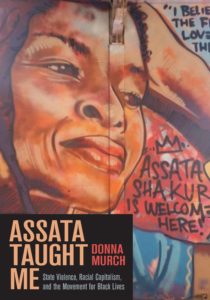
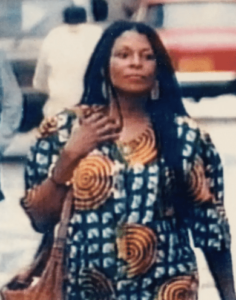
Assata Taught Me: State Violence, Racial Capitalism, and the Movement for Black Lives
Assata Shakur is an inspiration to many young Black and brown activists today. She was a Black Panther Party member in New York in 1968 when FBI Director J. Edgar Hoover said that the Panthers were the single “greatest threat to the internal security of the country.“ Hoover launched the Cointelpro program to eliminate the Black Panthers.
When the Panthers broke up, Assata became a member of the Black Liberation Army. She was seriously wounded and apprehended in 1973 by state troopers in a shoot-out on a New Jersey highway. She was tried and convicted of murdering a state trooper even though the medical evidence showed that she was badly injured and could not have fired a gun.
Assata escaped from prison in 1979 and five years later, she was given political asylum in revolutionary Cuba where she lives today. The FBI has put a $2 million bounty on her head. She has a target on her back inasmuch as she is wanted dead or alive.
Guest – Donna Murch, associate professor of history at Rutgers University in New Jersey. Professor Murch, who specializes in African-American and US History, Black Radicalism, and History of Mass Incarceration, is known as the historian of the Black Panther Party. She has recently written the book “Assata Taught Me: State Violence, Racial Capitalism, and the Movement for Black Lives” published by Haymarket Books. In it, she analyzes the forces giving rise to Black Power and Black radicalism, mass incarceration, the militarization of the police who target people of color, and the genesis of Black Lives Matter.

————————————–
CIA Sponsored Terror, Human Rights, Violations of U.S. and International Law, War Resister
Podcast: Play in new window | Download
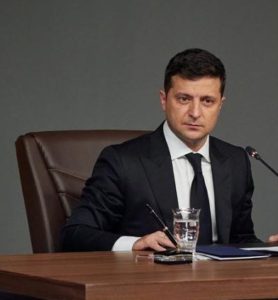

Russia, Deescalation And War Crimes
The Nuremberg tribunal called aggression “the supreme international crime” because it contains within it all other crimes. German Nazi leaders were tried, convicted, and hung at Nuremberg for the German war of aggression they began in September of 1939 when they invaded Poland and started World War II.
The guilty verdicts at Nuremberg were not merely “victors’ justice.” Its precepts were incorporated into the UN Charter. The Charter, which is a treaty ratified by the countries of the world, established a process for keeping the peace and “to save succeeding generations from the scourge of war.” War is outlawed with the only exception being self-defense after an armed attack or with the permission of the Security Council.
Russia is guilty of aggression against Ukraine. But that being said, the United States has baited the Russian bear repeatedly, starting in 1990 with the breakup of the Soviet Union. At that time, US Secretary of State James Baker promised the Russian leader Mikhail Gorbachev that the US-led NATO organization would not move “one inch” east towards Russia. This promise was broken.
The Russians were betrayed.
Since then, NATO has recruited 11 former Soviet bloc and Warsaw Pact countries into its military organization. Led by the United States, NATO is an organization has played an aggressive role, having carried out the bombings of Serbia, Iraq, Syria, Somalia, and Libya.
NATO has placed missiles in Poland within 100 miles of the Russian border. Missiles on the long border between Ukraine and Russia could hit Moscow in 10 minutes making it impossible for Russia to defend itself. Russia’s attempts to make United States understand that they have crossed a red line has been consistently rejected.
This is not to defend Russia’s actions but to place them in historical context. The world now has come to the edge of an abyss. A nuclear war could easily be started, annihilating all of humanity. The rule of law must be restored.
Russia must honor a cease-fire and withdraw. The United States must forswear arming Ukraine and recruiting the Ukraine into NATO. Ukraine must go forward as a neutral country like Austria or Finland.
Guest – Peter Kuznick is a professor of history at American University and directs the Nuclear Studies Program. at that institution. Peter and Oliver Stone wrote The Untold History of the United States and also produced a showtime documentary series based on the book.
—-
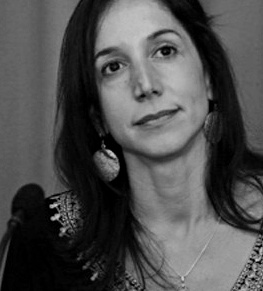
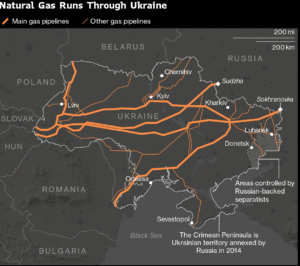
Ukraine Invasion Economic Analysis
Horrific images of the war in Ukraine and the now more than 2 million displaced persons streaming over Ukraine’s border continue to emerge. Ukrainian President Volodymyr Zelensky is calling for a no-fly-zone over Ukraine and the corporate media is hyping more punishing sanctions against Russia.
So far, Joe Biden has resisted calls for a no-fly-zone, apparently mindful that enforcing a no-fly-zone would mean the US Air Force shooting down Russian planes and bombing Russian ground installations that provide Russian forces with anti-aircraft support. That could well devolve into a nuclear confrontation.
The United States and other Western countries have imposed sanctions against Russia, including expelling some Russian banks from the SWIFT financial messaging system, essentially barring them from international transactions and effectively blocking Russian exports and imports, as well as banning imports of Russian oil and gas. But these sanctions harm not the Russian oligarchs, but the Russian people while raising gas prices for people in the United States.
The prospect of cyberwarfare lurks in the background, which could redound to the detriment of people around the world, including those of us in the United States. Meanwhile, the U.S. and its allies continue to send massive armaments to Ukraine, to the delight of the huge military contractors.
While Russia’s full-scale invasion of Ukraine constitutes illegal aggression prohibited by the UN Charter, it is necessary to analyze the history and geopolitics as well as the role NATO has played in the region, in order to understand both the context for the conflict and how it could have been prevented.
Guest – Corinna Mullin, an organizer and professor of political science and political economy at the John Jay College of Criminal Justice and Brooklyn College-CUNY in New York. Corinna is also a member of the steering committee of the International People’s Tribunal on U.S. Imperialism: Sanctions, Blockades, and Economic Coercive Measures.

——————————























